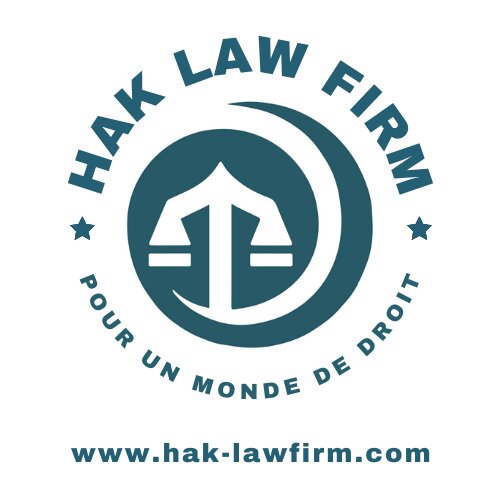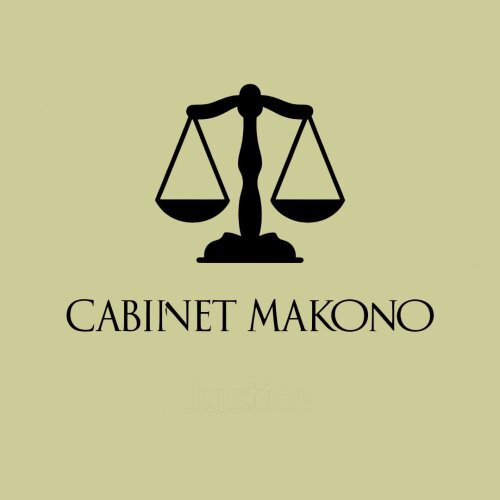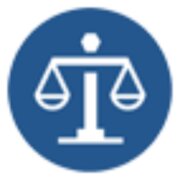Best Tax Lawyers in Kinshasa
Share your needs with us, get contacted by law firms.
Free. Takes 2 min.
List of the best lawyers in Kinshasa, DR Congo
About Tax Law in Kinshasa, DR Congo
The tax law in Kinshasa, like all the other regions in the DR Congo, is regulated by the Congolese Law on Taxation. This system is progressive and tax rates vary depending on the nature of the income. The two major types of tax that individuals and businesses will ordinarily face are the Corporate income tax (CID) and the Value Added Tax (VAT). Other types of tax include property tax, transfer tax, stamp duties, and mining taxes. It's noteworthy to mention that understanding tax laws in Congo can be challenging due to frequent changes, complexity, and sometimes lack of clarity in the laws.
Why You May Need a Lawyer
A lawyer could be of great assistance in understanding and navigating through the complex and often-changing tax system. Common situations where a lawyer's input may be required include: processing property transactions, catering for corporate matters, managing business setups and deal structuring, handling disputes with the tax authority, and providing advice on compliance with tax laws. Moreover, an experienced lawyer can provide relevant recommendations to avoid unnecessary tax burdens.
Local Laws Overview
Individuals and businesses in Kinshasa are subject to several taxes. The corporate income tax rate is 35% and VAT is set at 16%. VAT is charged on all imported goods and services unless they are exempt under the law. The housing tax applies to all built properties and the rate varies from 1% to 16% according to the rental value of the property. There are also a variety of other fees and duties. The legal system can be complex and the tax laws sometimes vague, so having a strong understanding of local laws is essential when doing business or property dealings in the region.
Frequently Asked Questions
What is the corporate income tax rate in Kinshasa?
The corporate income tax rate in Kinshasa is set at 35%.
What is the Value Added Tax (VAT) rate in Kinshasa?
The rate of Value Added Tax in Kinshasa is 16%.
Are there exemptions to VAT?
Yes, certain goods and services are exempt from VAT according to the Congolese tax laws.
Is there a property tax in Kinshasa?
Yes, there is. It's known as the housing tax and its rate varies from 1% to 16%, depending on the rental value of the property.
Is the tax system in Kinshasa different from other regions in DR Congo?
No, the tax system in Kinshasa follows the same Congolese Law on Taxation that is implemented across all other regions of DR Congo.
What other types of tax exist in Kinshasa?
Other types of taxes include transfer tax, stamp duties, and mining taxes.
How often do tax laws change in DR Congo?
Frequent changes can occur in the tax laws in DR Congo, which sometimes adds to the complexity of the system.
Is professional help advisable for understanding tax laws in Kinshasa?
Yes, professional help is often recommended due to the complexity and frequent changes in the Congolese tax system.
What can happen if I fail to comply with the tax laws in Kinshasa?
Failure to comply with tax laws in Kinshasa can lead to serious repercussions, including fines, penalties, or even imprisonment in severe cases.
Can I dispute taxation levies in Kinshasa?
Yes, tax levies can be disputed in Kinshasa. However, doing so would require a deep understanding of the laws and possibly the assistance of a lawyer.
Additional Resources
The primary governmental body responsible for taxation in Kinshasa is the Directorate General of Taxes (DGI). For additional information and assistance, consider reaching out to local tax consulting firms. Also, familiarizing oneself with the Congolese Law on Taxation is a good start to understanding tax-related issues.
Next Steps
If you need legal assistance in tax-related matters, consider engaging a reputable tax lawyer or consultant within the region. Ensure that the professional you choose is well-versed in the tax laws of DR Congo, and can provide accurate advice and assistance based on your individual situation. Remaining compliant with the tax system is not just a legal obligation but also a means to avoid unnecessary penalties and complications.
Lawzana helps you find the best lawyers and law firms in Kinshasa through a curated and pre-screened list of qualified legal professionals. Our platform offers rankings and detailed profiles of attorneys and law firms, allowing you to compare based on practice areas, including Tax, experience, and client feedback.
Each profile includes a description of the firm's areas of practice, client reviews, team members and partners, year of establishment, spoken languages, office locations, contact information, social media presence, and any published articles or resources. Most firms on our platform speak English and are experienced in both local and international legal matters.
Get a quote from top-rated law firms in Kinshasa, DR Congo — quickly, securely, and without unnecessary hassle.
Disclaimer:
The information provided on this page is for general informational purposes only and does not constitute legal advice. While we strive to ensure the accuracy and relevance of the content, legal information may change over time, and interpretations of the law can vary. You should always consult with a qualified legal professional for advice specific to your situation.
We disclaim all liability for actions taken or not taken based on the content of this page. If you believe any information is incorrect or outdated, please contact us, and we will review and update it where appropriate.
















